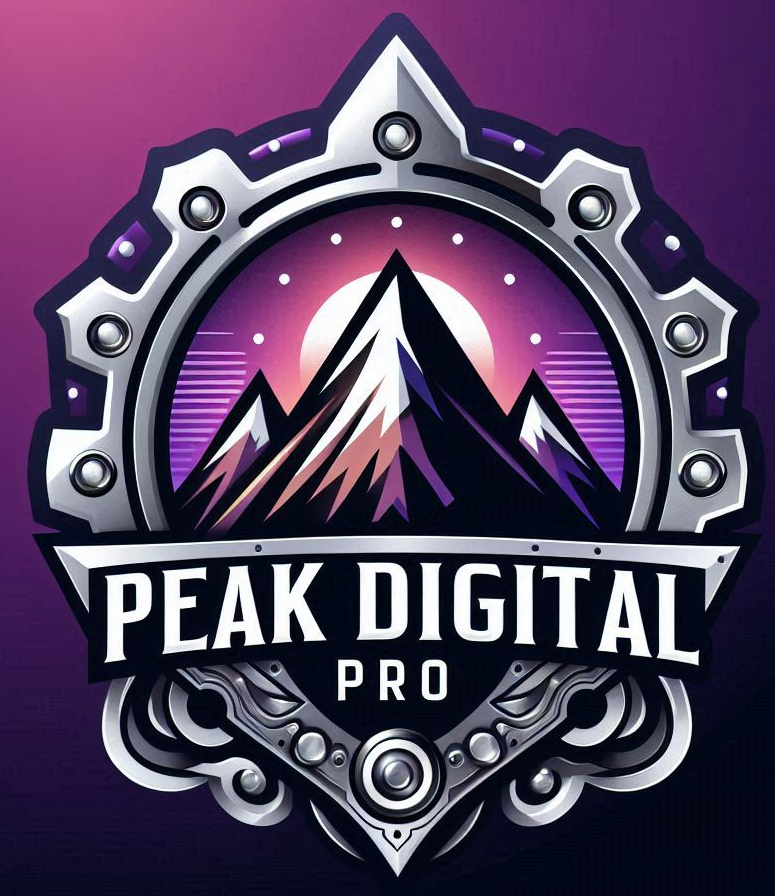SEO for Restaurants: Boost Local Search Results Today
Restaurants used to rely on word of mouth and foot traffic to fill tables. Now the game is digital. Over 78 percent of diners search for restaurants online before deciding where to eat . That sounds like a flood of opportunity, but most restaurant websites get buried where no one ever finds them. The secret is that just a few simple SEO tweaks can completely change which names show up first—and who gets the next hungry customer.
Table of Contents
Quick Summary
| Takeaway | Explanation |
|---|---|
| Optimize your NAP consistency | Ensure your restaurant’s name, address, and phone number are uniform across all platforms for better local visibility. |
| Implement effective mobile optimization | Your website must be mobile-friendly, load fast, and provide easy navigation to enhance user experience and search rankings. |
| Engage with user-generated content | Encourage customers to leave detailed reviews and share photos to improve your restaurant’s online presence and local SEO. |
| Leverage local keywords in content | Use location-specific keywords in your website and content to attract local diners searching for restaurant options. |
| Monitor and manage your online reputation | Regularly check reviews across platforms and respond to both positive and negative feedback to enhance your digital reputation. |

Understanding SEO for Restaurant Owners
Search engine optimization (SEO) represents a critical digital strategy for restaurants seeking to attract more local customers and stand out in a competitive market. At its core, restaurant SEO involves optimizing online content and digital presence to improve visibility in search engine results, particularly for local searches where potential diners are looking for dining options nearby.
The Importance of Local Search Visibility
Local search plays a pivotal role in restaurant marketing. Research from Search Engine Journal reveals that claiming and standardizing data across local search platforms is fundamental for restaurant visibility. This means ensuring your restaurant’s name, address, and phone number (NAP) are consistent across Google Business Profile, social media platforms, and online directories.
Customers increasingly rely on digital platforms to discover dining options. When someone searches for “best pizza near me” or “Italian restaurants in my area,” your restaurant needs to appear prominently in those results. This requires a strategic approach to local SEO that goes beyond simple website optimization.
Developing a Comprehensive SEO Strategy
Effective restaurant SEO involves multiple interconnected elements. A study by Dushyant Vaghela highlights how social media optimization directly influences search engine rankings. For restaurants, this means creating engaging content that not only showcases your menu and ambiance but also encourages online interaction and sharing.
Key components of a robust restaurant SEO strategy include:
- Website Optimization : Ensure your website is mobile-friendly, loads quickly, and contains relevant keywords related to your cuisine, location, and dining experience.
- Local Directory Listings : Verify and update your restaurant’s information on platforms like Google Business Profile, Yelp, and TripAdvisor.
- Social Media Engagement : Regularly post high-quality images of your dishes, share customer reviews, and interact with your online community.
Restaurant owners must recognize that SEO is not a one-time task but an ongoing process of refinement and adaptation. Search engine algorithms constantly evolve, and staying ahead requires continuous learning and strategic adjustments.
Below is a summary table outlining key components of an effective restaurant SEO strategy as described in the article. This helps clarify what areas owners should focus on for better results.
| SEO Component | Description |
|---|---|
| Website Optimization | Ensure your website is mobile-friendly, fast-loading, and keyword-rich for cuisine, location, and experience. |
| Local Directory Listings | Verify and update business info across platforms like Google Business Profile, Yelp, and TripAdvisor. |
| Social Media Engagement | Share high-quality dish images, post reviews, and interact with your online community regularly. |
| Keyword Research | Target local search terms and dining-related keywords for improved visibility. |
| Continuous Improvement | Regularly refine SEO tactics in response to evolving search engine algorithms. |
To complement our discussion, check out our guide on advanced local business SEO techniques for more in-depth strategies tailored to service-based businesses.
Understanding and implementing these SEO principles can transform how potential customers discover and choose your restaurant. It’s about creating a digital presence that not only attracts attention but also builds trust and credibility in the local dining scene.
Optimizing Your Restaurant Website for Local Search
Creating an effective website that drives local search visibility requires strategic planning and precise implementation. Restaurant owners must focus on several critical elements to ensure their digital presence attracts and converts potential diners.
Technical Foundation for Local Search Success
Research from BrightLocal emphasizes the importance of implementing technical SEO strategies specific to restaurant websites. This begins with comprehensive keyword research that targets local dining-related search terms potential customers use when seeking restaurant options.
Schema markup represents a powerful technical tool for restaurants. By embedding structured data into your website, you help search engines understand critical information like menu items, operating hours, location, and customer reviews. This additional context can significantly improve your website’s search result appearance and click-through rates.
Content and User Experience Optimization
Website content must be both informative and locally relevant. This means creating pages that speak directly to your community, highlighting local ingredients, neighborhood connections, and unique dining experiences. Your menu, which should be easily accessible and mobile-friendly, becomes a critical SEO asset when optimized with descriptive, keyword-rich descriptions.
Key content optimization strategies include:
- Location-Specific Keywords : Integrate neighborhood and city names naturally within your content.
- High-Quality Images : Use descriptive file names and alt text for food and restaurant images.
- Customer Testimonials : Incorporate authentic reviews that include location-based keywords.
Performance and Mobile Considerations
Website performance directly impacts search rankings. Pages must load quickly, especially on mobile devices where most local searches occur. Learn more about mobile optimization strategies for local businesses to ensure your restaurant website provides an exceptional user experience.
Mobile responsiveness goes beyond just scaling content. It involves creating an intuitive navigation experience, ensuring click-to-call functionality works seamlessly, and presenting essential information like address, hours, and reservation options prominently.
Restaurant owners should regularly audit their website’s performance using tools like Google PageSpeed Insights and Google Search Console. These platforms provide actionable recommendations for improving site speed, mobile compatibility, and overall search engine visibility.
Here’s a checklist table summarizing key local SEO website optimization actions for restaurants, helping owners track their progress on critical tasks.
| Optimization Action | Completed (Yes/No) | Importance |
|---|---|---|
| Conduct local keyword research | Essential for ranking in relevant searches | |
| Add schema markup for restaurant info | Helps search engines understand your content | |
| Ensure NAP consistency across web | Critical for local pack placement | |
| Optimize menu page (descriptions, SEO) | Attracts and informs customers | |
| Use high-quality, alt-tagged images | Improves appearance and accessibility | |
| Test and improve mobile responsiveness | Key for mobile user experience and SEO | |
| Enable click-to-call functionality | Facilitates reservations and inquiries | |
| Audit with PageSpeed Insights | Ensures site performance is optimized |
Remember that local SEO is an ongoing process. Search engine algorithms continuously evolve, demanding consistent attention and strategic updates to maintain and improve your restaurant’s online presence.
Creating Effective Content to Attract Diners
Content marketing represents a powerful strategy for restaurants to connect with potential diners, enhance online visibility, and establish a compelling digital presence. By crafting strategic, engaging content, restaurants can not only improve their search engine rankings but also build meaningful relationships with their local community.
Developing Localized and Engaging Content
Research from Search Engine Hub highlights the importance of creating content that resonates with local audiences. This means going beyond simple menu descriptions and developing narratives that capture the unique essence of your restaurant.
Effective content strategies might include sharing stories about your restaurant’s origins, highlighting local ingredient sourcing, featuring chef profiles, or creating guides about local culinary experiences. For instance, a farm-to-table restaurant could create blog posts detailing relationships with local farmers, showcasing the journey of ingredients from farm to plate.
Social Media and User-Generated Content
According to Search Engine Journal , social media engagement plays a crucial role in driving online visibility. User-generated content such as customer reviews, photos, and testimonials can significantly enhance your restaurant’s digital footprint.
Key approaches to leveraging social media and user content include:
- Encourage Photo Sharing : Create Instagram-worthy dishes and spaces that customers want to photograph and share.
- Run Social Media Contests : Develop engaging challenges that motivate customers to interact with your brand online.
- Highlight Customer Experiences : Showcase real customer stories and testimonials across your digital platforms.
Strategic Content Marketing Approach
Learn more about advanced content marketing strategies for local businesses to elevate your restaurant’s digital presence.
Research from RestroWorks demonstrates that location-specific content can dramatically improve local search visibility. This might involve creating blog posts about local events, featuring collaborations with nearby businesses, or developing content that positions your restaurant as an integral part of the community.
Consider creating content that answers common customer questions, provides value beyond just promoting your restaurant. This could include cooking tips, ingredient guides, local dining recommendations, or behind-the-scenes glimpses of your restaurant’s operations.
Remember that effective content is not about constant self-promotion but about providing genuine value to your audience. By consistently delivering informative, entertaining, and locally relevant content, you can attract more diners and establish your restaurant as a trusted local culinary destination.
Leveraging Reviews and Social Media for SEO
Reviews and social media have transformed from simple communication channels to powerful SEO tools that can significantly impact a restaurant’s online visibility and reputation. Understanding how to strategically manage and optimize these platforms can provide substantial advantages in local search rankings.
The Power of User-Generated Content
Research from Yelp review analysis demonstrates that user-generated content plays a critical role in predicting restaurant ratings and influencing potential diners’ perceptions. The textual content of reviews can provide search engines with rich, contextual information about your restaurant, potentially improving your search visibility.
Encouraging customers to leave detailed, authentic reviews is more than just collecting feedback. These reviews often contain location-specific keywords, menu descriptions, and experiential details that can naturally enhance your local SEO efforts. Restaurants should create easy pathways for customers to share their experiences across multiple platforms like Google Business Profile, Yelp, TripAdvisor, and Facebook.
Strategic Social Media Engagement
Social media platforms are not just marketing channels but essential components of a comprehensive SEO strategy. Learn more about advanced local business visibility techniques to maximize your digital presence.
Key strategies for leveraging social media for SEO include:
- Consistent Posting : Maintain an active presence with regular updates about menu items, special events, and behind-the-scenes content.
- Hashtag Optimization : Use location-specific and cuisine-related hashtags to increase discoverability.
- Engagement Tactics : Respond promptly to comments, messages, and reviews to demonstrate active community management.
Reputation Management and SEO
Managing your online reputation is crucial in the digital age. Search engines consider the quantity, quality, and recency of reviews when determining local search rankings. Restaurants should develop a proactive approach to reputation management:
- Monitor reviews across all platforms regularly
- Respond professionally to both positive and negative feedback
- Encourage satisfied customers to share their experiences online
- Address negative reviews constructively and demonstrate commitment to customer satisfaction
By treating reviews and social media as integral parts of your SEO strategy, restaurants can create a robust online presence that attracts more local customers. Remember that authenticity, consistency, and genuine engagement are key to building a strong digital reputation that resonates with both search engines and potential diners.

Frequently Asked Questions
How can SEO improve my restaurant’s visibility online?
SEO enhances your restaurant’s visibility by optimizing your website and online presence to rank higher in search engine results, particularly for local searches where potential diners are looking for restaurants nearby.
What is NAP consistency, and why is it important for local SEO?
NAP consistency refers to ensuring that your restaurant’s name, address, and phone number are uniform across all online platforms. It is important for local SEO because it helps search engines verify your business information, improving your local search visibility.
What are some effective strategies for optimizing my restaurant’s website for local search?
Key strategies include conducting local keyword research, implementing schema markup, optimizing your menu page with descriptive content, and ensuring mobile responsiveness for a great user experience.
How can I encourage user-generated content to boost my restaurant’s SEO?
Encourage customers to leave detailed reviews and share their experiences on social media. You can create engaging dishes that are Instagram-worthy, run social media contests, or highlight customer testimonials to enhance your digital presence.
Take Your Restaurant’s Local SEO Results to the Next Level with Peak Digital Pro
Are you frustrated that your restaurant’s website is buried in local search, even though you’ve worked hard to keep your menu updated and your customer service top-notch? The article above explains why most restaurants struggle with inconsistent NAP details, poor mobile usability, and a lack of local keyword targeting. These issues stop you from showing up when hungry customers search for places to eat nearby. At Peak Digital Pro, we combine proven web development, advanced SEO optimization, and the latest AI-driven marketing techniques to overcome these exact challenges.

Stop letting your competitors take the spotlight when your food and service truly deserve to stand out. Visit Peak Digital Pro to see how our tailored solutions help restaurants dominate local search and convert online browsers into loyal guests. Want a partner who can handle everything from site speed to Google Business Profile optimization? Get in touch today and find out how we can start boosting your local visibility right now.
Recommended
-
[
What Is Local SEO? Guide for US and Colorado Businesses 2025
]( https://peakdigital.pro/2025/07/23/what-is-local-seo-guide-for-us-and-colorado-businesses-2025 )
-
[
Improving Local Search Visibility: 2025 Guide for Colorado Businesses
]( https://peakdigital.pro/2025/07/12/improving-local-search-visibility-colorado-2025 )
-
[
How to Improve Website Rankings: 2025 Guide for U.S. Businesses
]( https://peakdigital.pro/2025/07/16/how-to-improve-website-rankings-2025-guide-us-businesses )
-
[
Mobile SEO Best Practices 2025: Guide for US Business Owners
]( https://peakdigital.pro/2025/07/12/mobile-seo-best-practices-2025-guide-for-us-business-owners )







